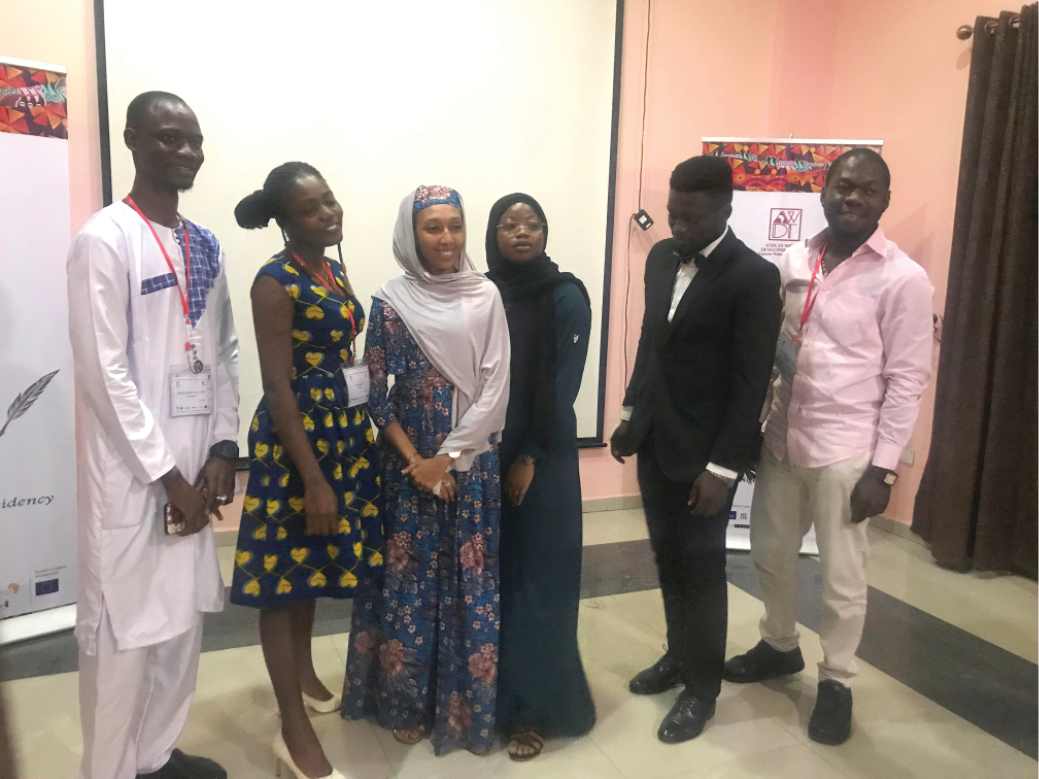PenPen Residency comes to a close
The first half of the PenPen Residency Trust, designed to help Africans tell their stories, came to a close this week in Abuja. The residency, which brought together six West African writers, started on September 1 and ended on September 20. Participants included Modou Lamin Sowe from The Gambia, Edem Azah, Ghana, Sakina Treoré from […]

(L-R) Modou Lamin Sowe, Edem Azah, Maryam Boyi, Sakina Treoré, Ngang God’swill and Tega Oghenechovwen at the closing ceremony.
The first half of the PenPen Residency Trust, designed to help Africans tell their stories, came to a close this week in Abuja.
The residency, which brought together six West African writers, started on September 1 and ended on September 20. Participants included Modou Lamin Sowe from The Gambia, Edem Azah, Ghana, Sakina Treoré from Cote d’Ivoire, Ngang Godswill from Cameroon, Maryam Boyi and Tega Oghenechovwen from Nigeria.
While expressing his appreciation to the entire management of the PenPen Residency Trust, Sowe said the residency has offered him the opportunity to network and focus on producing new work.
Speaking about identity, Traore said, ‘When it comes to portraying the African identity, I believe that you cannot find a book that will fully portray that identity. This is because we all have a part of us in the stories we write. We do not have a single African identity because we have cultures that are similar but not entirely the same thing. That itself is the African identity.’
Anthony Onugba, the founder of PenPen Residency Trust in a speech said he was glad that a space has been created to bring together African writers, where they can network, develop their skills and ensure literature in Africa is no longer in the background.
Onugba further explained that the plan is to have two residencies. “This is the first half for writers from West Africa and Central Africa. The next residency will be in March and hosted in Nairobi. This will be for writers from Southern Africa and Eastern Africa,” he said, adding that in the end, stories written by residents will be anthologized to encourage Africans to write and tell their stories.
